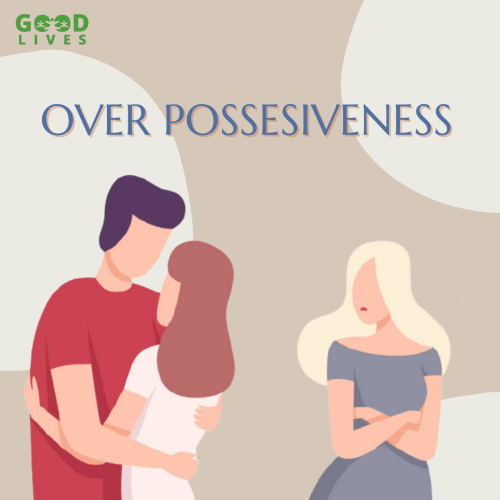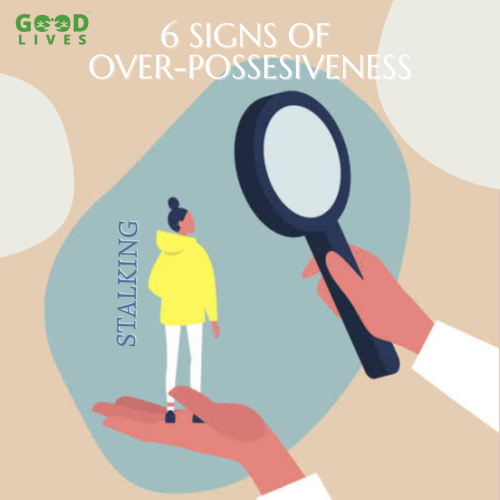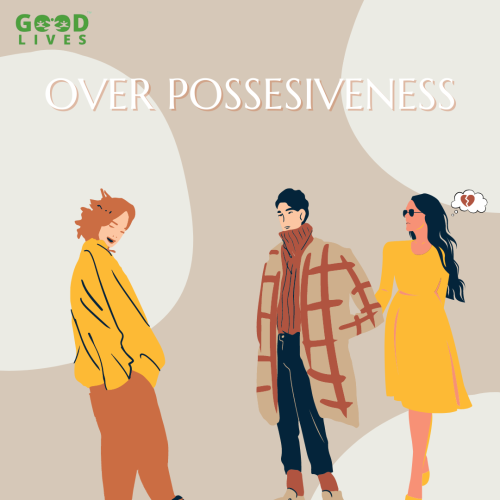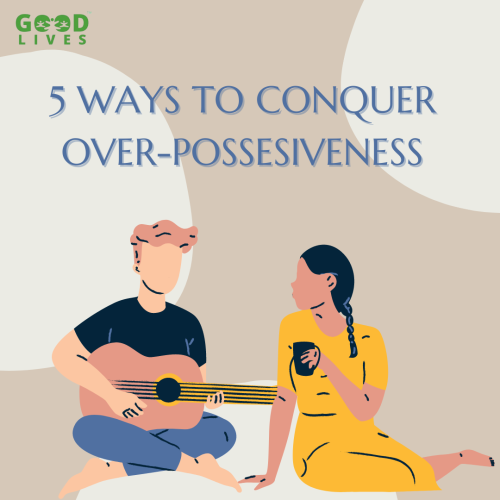What is Over Possessiveness?

Possessiveness is a poison, which on spreading impacts the brain
and starts controlling you- having a perilous and noxious result on your relationships.
Possessiveness is having or manifesting a desire to control or dominate another, especially in order to limit that person’s relationships with others. Possessiveness is also fundamentally known as a fear of loss.
As a person gets obsessed over another person, it is common to have a thought of “will they leave me” or “if they talk to someone for too long maybe they’ll leave me”. Possessive people worry that their partners will leave them. This creates feelings of fear, anxiety anger, and despair.
Trust is a vital aspect of a healthy relationship. In order to trust, you must feel your partner is reliable, cares about you, and can be counted on.
How do you know you or your partner is over possessive?
Top 6 Signs and Symptoms of Over Possessiveness

- An overwhelming attraction to one person: Do you make your partner the center of your world, while having no space at all for other friends, family, or even a life of your own? Or just want to be with that one person to an extent that you start controlling their lives with your to be with them?
- Jealousy and envy over other interpersonal attractions: Do you closely monitor their (your partner’s) interactions with people, be it friends or colleagues–and try to find excuses to fight?
- Low self-esteem: Does your partner call you wherever you are not together or feel low and worthless without them? Have you ever had a sense of inferiority and fear of losing a tour partner? From the seeds sown of low self-confidence and self-love the plant of over-possessiveness sprouted.
- Stalking: Have you caught yourself stalking your partner’s friend group on any social media platform?
- Sometimes controlling or domination:
It is when you have a feeling of your partner as your possession and sometimes try to emotionally blackmail your partner into cutting contact with friends you are intimidated by. - Uncertainty: You know you are being possessive when you feel a constant need for reassurance without any specific reason. When you are uncertain about the relationship or have negative thoughts regarding your counterpart.
These are the reasons which cause possessiveness in relationships
Do you know enough about tourette syndrome? Here are some eye-openers
How to Deal with Your Over Possessive Partner?

Many people tend to confuse possessiveness with love. But it isn’t. Possessiveness, in general, is part of a relationship but an excessive amount of possessiveness is very unhealthy for your relationship. In simple words, it is just the opposite of love i.e. anti-love.
If you recognize signs of possessiveness in your other half, you should understand that it’s NOT ABOUT YOU before taking any step. your partner is possessive, it is his/her issue and nothing of your doing. But there are some ways you can deal with your possessive partner in a caring way.
You can reassure your partner about your love and affection for them and the current state of your relationship. If their possessiveness hasn’t crossed the line into abuse or is way too controlling this may be enough to reassure them about the stability of your relationship. If reassuring your partner doesn’t help with possessiveness, therapy may be the next step. This may help them with issues from their past. You may both benefit from Online Counseling
These steps could cause a serious positive behavior change in your partner!
Top 5 Ways on How to Conquer Over Possessiveness

- Communication is the key – Talk calmly to your partner about your feelings.
- Address the issues!
- There is no pain in setting boundaries.
- Maintain relationships with people other than your partner.
- Seek a therapist’s help with feelings of insecurity.
“Good communication is the bridge between confusion and clarity.” — Nat Turner
You may wanna need help in getting over social anxiety too there is some help. Click here.
